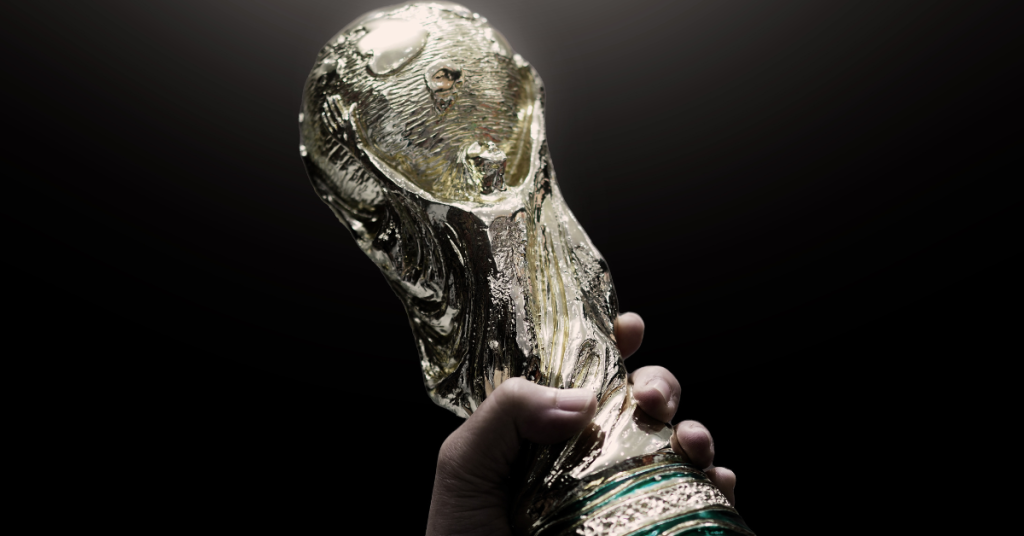England World Cup “Winners”
Anyone who follows football and watched England playing at the World Cup in Qatar can’t have failed to notice something different about that particular tournament.
“It was in the desert”! Yes, it was.
“It was held in a country without a real football history”. Right again.
“There was no/very little alcohol served”. Indeed.
But that’s not what I’m talking about. I’m talking about belief.
What is belief?

The Oxford English Dictionary describes belief as ‘an acceptance that something exists or is true, especially one without proof’.
There you have it. The conundrum that drives the world. Particularly in the world of sport. If belief comes from knowing, without knowing, how do you engender it to achieve success? Mmmmm.
And how on earth do you get a team or person to believe if the very thing they need to believe in, to make it happen, hasn’t er… happened?
This is undoubtedly an issue that has perplexed not only Football Managers and Sportspeople the world over but Politicians, Company bosses, and Heads of State – not to mention the average person in the street – since we knew how to actually SAY the word ‘belief’.
So how do you create belief without proof?

Anyone who has ever subjected themselves to an England team’s tournament penalty shoot-out will know exactly what happens when you don’t believe.
We could probably bring the Germans and Argentinians in here as whatever bottle of belief they have, we need it.
Belief has to be built from the ground up. Something Gareth Southgate and his back-room staff have been working on since they came to power.
You start with a vision, and then you turn that vision into a plan. In 2013 Greg Dyke, then FA Chairman, helped create a vision, a blueprint, to get England to the semi-finals of Euro 2020 and then to build and progress and aim to win the World Cup in Qatar in 2022. That final piece of the plan seemed unlikely, with that particular (World Cup) being held in 50 degrees of summer madness, but he also knew common sense would ultimately prevail, and it would be moved to the cooler winter temperatures AND that it would necessitate a winter break, which would overcome the fatigue that has notoriously affected England teams at major tournaments.
That was where the planning came in.
Next, the team needed to believe. Not just to understand the word and what it meant but to feel it. A ‘minor’ issue for a team that hadn’t reached the final of a major tournament for almost 60 years! The bedrock to creating belief is to start by developing a positive attitude and then ‘simply’ starting to talk positively to yourself and those around you. Catch yourself talking negatively and turn this into a positive scenario. Gradually over time, you will be talking only in the positive. In England’s case, the language used became “we can” rather than “what if”; it became “we will” rather than “we’ve got a chance”; it became “when”, not “if”.
You start to learn to trust yourself/yourselves and what you do, your process. In the England football team’s case, it started – not surprisingly – with the team interacting, talking candidly, and practising continually and repetitively as a group so that they got to know every aspect of each individual around them, and saw each of them working to be the best they could be. Gradually, they learned that they would each do their job to the best of their ability and help you (the individual) be the best YOU could be. Trust was developing.
Believing in others/your teammates before you believe in yourself
It’s easier to believe in someone else because you can see what you deem proof in others before you feel it in yourself.
Achieving similar/past successes
It’s easier to believe in someone else because you can see what you deem proof in others before you feel it in yourself. Having reached the World Cup Semi-Finals in 2018 (the first time an England team had reached this stage in almost 30 years), various England players said they felt they had reached a pinnacle and were “happy to be there”. This set the groundwork for 2 (3) years later when, having closely studied the French national team that won the 2018 tournament, they reached their first major final (penalties – at Wembley – again!) in 54 years, and then another two years later (in Qatar) when the management team knew what it took to get past the semi-finals (to reach a first World Cup Final in over 50 years). They knew it took more than being “happy to be there” and needed more mental strength and team trust; most of all, it required belief.
Taking positive action and monitoring progress
Were England – and are you and your teams – getting closer to the Holy Grail? Was the belief building? Only performances against the giants of world football and at big tournaments could really say and reach the final of Euro 2020 – taking out old foe Germany and matching Italy ‘pound for pound’ – in 2021 put down a major marker that told the group they could break the glass ceiling and reach a final.
It also started getting England into conversations around the world of football that this team was a threat in Qatar 2022 and beyond. Positivity breeds, and hearing that you are potential winners can only build belief. If others think we can… perhaps we can.
Be authentic – know who you are, where you are and where you want to be
Accept it and own it. Southgate knew we weren’t France or where they were, but he knew we had a group of current and upcoming players with sufficient quality who could, with tweaks and a belief, be like France – winners. France had never won the World Cup before they went through this process, winning it on home soil in 1998.
Fear must be banished
Fearing failure is the enemy, not failing. If you don’t fail, you don’t learn. England needed to be like the lions adorning their chests – fearless – and not entertain any thoughts of failure or the inevitable media headlines that follow when football doesn’t come home. Taken strictly on results, the build-up to Qatar was awful. There were calls for Southgate and all his visions, plans and staff to reign after a dreadful 0-4 defeat at home to Hungary. But he and they were planning, testing, trialling…..
The benefits of believing in yourself more
When you have belief, you have better general health – individually and as a group. Positivity generates good chemicals in your brain and your body. Thus you develop healthier relationships (team spirit); you tend to work harder and smarter as you develop and increase your focus. You will be happier generally and have more energy (positivity attracts more positivity, whereas negativity repels).
You can handle pressure and stress better; you have more presence, and it’s easier to influence, communicate and work with others when you have a definitive mutual goal.
Ultimately, England went out at the quarter-final stage – because of a penalty miss! – but this team know they could, and possibly should, have won that game and that Cup, but the belief wasn’t and isn’t quite there.
But one only needs to look at the belief and determination – and bloody-mindedness (and gamesmanship, grit and refusal to accept anything but victory – a conversation for another time) – in the Argentinian squad to do absolutely anything and everything necessary to send arguably the world’s best player – Lionel Messi – into international retirement, to see what the next step is.
Taking what they have learnt from the past three tournaments and adding in all the elements that can be labelled under ‘do or die spirit’ that brought Argentina through from first-round embarrassment to World Cup Winners.
“If you don’t believe you are the best, then you will never achieve all that you are capable of.”
Cristiano Ronaldo.

